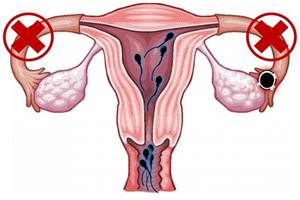Blocked / damaged tubes
The tubes have important functions in the genesis of the pregnancy. Therefore, it is important that they are continuous and functional.
|
The fertilization At ovulation, the egg cell is released from one of the two ovaries. The respective tube has the task to take the ovum in. To this end, the so called fimbria sit around the outer opening of the end of the tube and facilitate the passage of the ovum into the opening. There, in the outward third of the tube, the egg cell remains and awaits contact with the sperm cell. Eventually, the fertilization occurs, the entering of one spermatozoon into the ovum. Even if the intercourse has proceeded several days before the ovulation, there are enough remaining sperms in the tubes for the pregnancy to succeed. |
|
IMPORTANT: As you can see you do not have to make the unnecessary effort to pick "the right day, the right moment". You do not need to purposefully await and identify the ovulation if you have intercourse every two or three days. You can save yourself the pointless stress or troublesome measures like the daily measurement of the basal body temperature or keeping track of ovulation with urine or saliva tests.
Transport of the fertilized egg cell and the early embryo
After fertilization, the ovum, which has already entered the first stages of the early embryo, remains in the tube and is transported through it and into the uterus at the right time so that nidation may occur. During this time, the cells of the tube and the embryo communicate steadily. These messenger substances are important for the development of the embryo.
Tubal dysfunctions
If you and your partner have been unable to conceive for more than one year, this may be caused by a dysfunction or blockage of the tubes. You should take this into account if you have had inflammations in the region of the tubes or the ovaries or suffer of endometriosis. Inflammatory diseases in neighboring organs, e.g. appendicitis or inflammatory intestinal disease such as Morbus Crohn or colitis ulcerosa can also lead to tubal damage.
One special situation is women who have chosen tubal ligation (tying) as a method of contraception.



